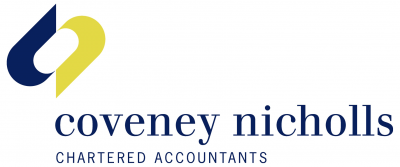Another tax year has ended which ushers in the start of the next. As with every new tax year, there are a few changes happening to the ways you will pay and the way tax is being calculated.
With Chancellor Rishi Sunak announcing new measures in the Spring Statement last month, some changes have already come into effect with more on the horizon.
The team at Coveney Nicholls is here to explain how any of these changes may impact you or your small business.
Spring Statement
In March, the Chancellor took to the House to announce a set of tax measures which he hoped would help combat the rising costs of living. Fuel duty was cut and will be frozen over the next 11 months, with both petrol and diesel dropping by 5p per litre. This cut should mean a saving of £100 for the average car driver, £200 for van drivers and up to £1,500 for hauliers.
Chancellor Sunak also announced that the National Insurance contributions (NICs) threshold would be raised to £12,570, aligning it with the income tax threshold.
To level out the cost of NICs for employers, the employment allowance was also raised by £1,000, from £4,000 to £5,000, meaning employers would have less of their profits affected by NICs. This will be coming into effect as of July.
The Government will also be looking into the transformation of research and development (R&D) tax reliefs. By 2024, it aims to be spending £20 billion a year with a focus on support for data and cloud computing costs and R&D carried out in the country. Businesses will also be able to claim relief on R&D “supported by pure maths.”
Making Tax Digital
Now the new tax year has begun, Making Tax Digital (MTD) for VAT has officially rolled out. This is now the only way for you to file your VAT returns and make your VAT payments.
Businesses with a turnover below the £85,000 VAT threshold will be required by law to switch over to digital and use MTD-compatible software to do their returns online. This is expected to make the process easier while leaving less room for error.
Over the next 4 years, MTD will also be extended to income tax and corporation tax in 2024 and 2026 respectively. Self-employed business owners and landlords with a turnover of £100,000 and over can take part in the pilot scheme for MTD for income tax (MTD for ITSA).
Capital gains tax
The allowance for capital gains tax (CGT) will remain frozen until 2026, giving individuals a threshold of £12,300 a year before paying CGT.
Unfortunately you may be charged more in the future on anything gained due to the sale of a home or shares that aren’t in an ISA, as CGT allowance will not be raised with inflation.
VAT for businesses
After the past couple years of cut VAT rates for businesses, the rate has officially gone back up to the original 20%. Having been decreased to 5% due to the pandemic, VAT rose back to 12.5% last October. Now that all COVID laws have ended, the original 20% VAT rate is back.
If you have any questions about how these proposed tax changes will affect you or your business, Coveney Nicholls is here to provide you with comprehensive advice on all things tax.

